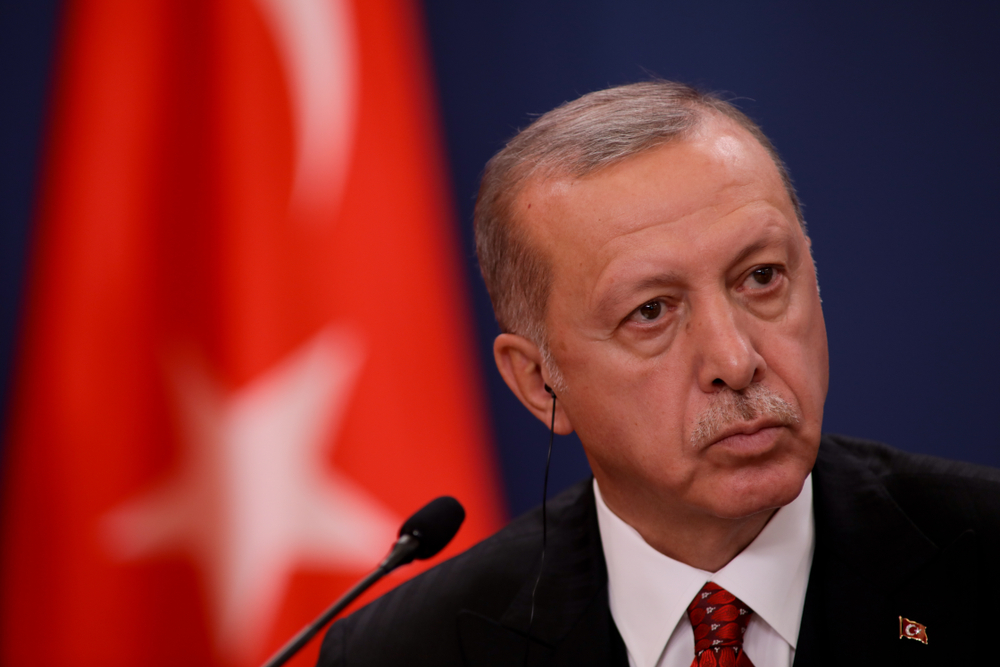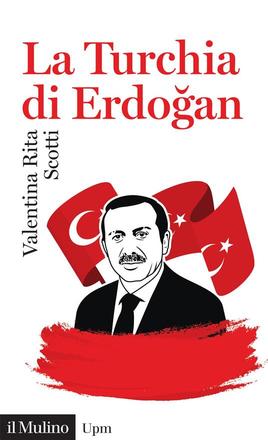Recep Tayyip Erdogan © Sasa Dzambic Photography/Shutterstock
Erdoğan’s period of power changed Turkey. But it is also Turkey that has changed Erdoğan. We talked about it with Professor Valentina Rita Scotti, author of the volume “Erdoğan’s Turkey” recently published for Il Mulino
Erdoğan and the AKP: an authoritarian anomaly or a structural product of Turkey’s dynamics?
I am convinced that Erdoğan represents above all the fruit of a political tradition already present in the country, a tradition that tends to favor strong men endowed with a certain charisma and capable of speaking an effective language to the population. After all, even Atatürk himself became the “father of the nation” and uncontested leader of the people due to similar qualities, despite being surrounded by many very valid figures from a political point of view (much of what he did could not have happened without the contribution of İnönü for example).
Even in the history following the foundation of the republic, passing through the various coups d’état, strong generals were favored and privileged. For example, in the 1982 referendum it was decided to combine the referendum question for the approval of the new constitution with the appointment as president of Universe , because Evren was precisely a strong, charismatic figure capable of attracting consensus. Erdoğan can therefore be seen as the result of a flow and a series of dynamics that have pushed the population to grapple with the need from time to time to find a “father of the nation”. Specifically, he manages to become the father of the homeland of a generation, or of a historical moment, in which Turkey emerged from the earthquake of ’99 to which the then CHP-led government was unable to give a satisfactory answer (not to mention the various scandals with which the patronage system of government and the connivances between the mafia and politics were made manifest).
Erdoğan emerges as a new proposal because, while relating to the theories of Erbakan , proposes a different way of doing political Islam: he does so by bringing with him his background as a “boy of the people”, born in the poor neighborhood of Kasımpaşa and educated in the Rize area but who at the same time was able to emancipate himself and study economics and undertake your professional career. He therefore embodies an ideal of success and embodies a program that the Turks of that historical moment like, because it is a program that gives space to the conservative voice of a large part of the “deep” country and manages to speak to that part of the people.
Islamism represents an important element of your political proposal…
The moment the AKP enters the political scene, it innovates Turkish political Islam. In a sense, religion is used in a Machiavellian sense as the instrument of the kingdom, that is, as a reminder of values that are part of a background common to many. There is no appeal for a return to the principles of Shar’ia nor to explicitly discriminatory regulations against women, but to the desire to recognize a founding value and belonging to Sunni Islam.
It is an element that clearly pleases all those Turks who advanced forms of claims against the Kemalist elite, which was made up above all of the more educated and wealthy social classes. And this is why Erdoğan manages to gain a hold on Anatolian Turkey at the beginning and in fact continues to maintain his grip on those areas, combining the religious element with the economic one. Erdoğan offers Turkey an economic boom, creates the business class of the so-called “Islamic Calvinists” who will ensure him consensus and financial support. In addition, the country is moving towards a rapprochement with European standards that began even before the rise of the AKP.
How is the woman’s vision affected?
When we talk about feminism and feminist movements, we tend to think only of progressive emancipatory movements, but there is a whole area that we could call “family feminism” which actually asks for the right to manifest one’s religious affiliation, the right to have greater assistance for the care of the family, the right to a series of things that fully frame the woman in her dimension ADDITIONALand not equal. The AKP’s vision is precisely this: equal rights but not equality. Man and woman are only considered legally equal, but not equal as they are genetically different.
Obviously this is increasingly clashing with the vision of feminism more traditionally known to us, which in Turkey is very active and which affirms that on the contrary women have full equality. It should also be said that equality of rights under Erdoğan is often a “legal fiction”: for example, women’s work is encouraged, but at the same time their maternal role is also reinforced and the need to procreate and take care of children and of the husband. In a certain sense, however, we are in a not so new line if we look at Turkish history: if it is true that women’s emancipation took place very early (the right to vote dates back to the 1930s), it is also true that this was granted because we wanted to ensure that the “new Turkish citizen”, worthy of sitting in international forums, had a “modern” and presentable wife next to him. The woman was however conceived in an ancillary sense.
Erdoğan’s policies change over time…
Up to Gezi Park we can speak of the reformist period of the Akp, albeit between lights and shadows. On the one hand, there is an attempt to harmonize the Turkish legal system with European standards, a reconfiguration of the role of the military in the legal system is implemented, there is an economic revival (the so-called “Anatolian tiger” is born, which grows by 8% every year and resolves the debt with the International Monetary Fund, and with very high employment rates): all this generates consensus.
From 2013 onwards, fault lines begin to emerge within society, which had always existed but which Gezi’s protests make definitively manifest. This is a dissent that, moreover, is growing because in the meantime there are generations, born between the era of Erdoğan and the previous era, who are probably more inclined to notice the restrictions on rights implemented by the government, precisely because they had, moreover, experienced the expansion of rights of the previous decade. While the previous generation had experienced coalition governments, political instability and economic crisis, the one coming to vote in the first decades of the 2010s was much less willing to trade their rights for stability. I would say this is the first turning point. In the second period of the AK there is a change of pace towards competitive authoritarianism.
Furthermore, the AKP with Erdoğan has changed the Turkish form of government, effectively inventing a new one. A very peculiar form of presidentialism has consolidated: the legal definition that is often given rather than presidentialism is “government by the president”. An atypical order, in which the counterweights typical of other systems such as the US one, for example, are missing. In Türkiye, the president really has enormous decision-making power.
Is Erdoğan leaving a more socially divided Türkiye?
Turkey before Erdoğan was certainly a much poorer country than it is now, tending to be less cultured and educated because there was less access to education. The growth of wealth and education, in a certain sense, also leads to a greater questioning of certain issues, to a more widespread critical gaze. I believe that part of the dissent for Erdoğan also arises from this type of social evolution, which makes the pre-existing fault lines more evident but less decisive when the concerns were above all economic.
I think, however, that Turkey is more affected by international dynamics than other countries. Let us also think of the Kurdish question: the outbreak and the evolution of the war in Syria have inevitably brought that problem back to a more security dimension. Similarly, let us not forget that Turkey has seen its doors closed to access Europe and many AKP policies have changed from there. In this sense, I believe that the EU has had a responsibility that should not be underestimated in Erdoğan’s authoritarian drift.
Have you thought about a subscription to OBC Transeuropa? You will support our work and receive preview articles and more content. Subscribers to OBCT!



